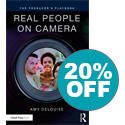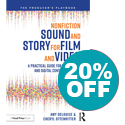Managing Too Many Choices
 For a web video project, I recently interviewed Sheena Iyengar, author of The Art of Choosing. She is a professor and researcher who famously conducted the so-called “jam” experiments at a farmer’s market. Shoppers at the booth with the most flavor choices purchased the least amount of jam. Those with fewer options purchased more. When it comes to social media and the internet, I’m starting to feel like the first group of jam shoppers. Overwhelmed. Iyengar’s research points to our need to choose from among a smaller group of pre-identified choices. When we do this, we actually have better outcomes.
For a web video project, I recently interviewed Sheena Iyengar, author of The Art of Choosing. She is a professor and researcher who famously conducted the so-called “jam” experiments at a farmer’s market. Shoppers at the booth with the most flavor choices purchased the least amount of jam. Those with fewer options purchased more. When it comes to social media and the internet, I’m starting to feel like the first group of jam shoppers. Overwhelmed. Iyengar’s research points to our need to choose from among a smaller group of pre-identified choices. When we do this, we actually have better outcomes.
So who’s helping us choose?
On the internet, there is much talk of “influencers.” These folks are supposed to know something, and if we follow them on Twitter, or join the groups they lead on LinkedIn, read their blog posts or friend them on Facebook, we will have some assistance in our discernment. So where do we start finding these people? If we are in a particular field, then the thought leaders in that field are an excellent place to start. But in the social media field itself, there are many self-titled experts. Some have thousands of followers on Twitter mainly because they’ve figured out how to game the system and get lots of automatic follow-backs. Following them could make us the lemmings headed over the cliff.
Last in, first out.
This expression usually refers to hiring and firing. But it could easily apply to how we are processing information in a world with too much of it. According to behavioral economist George Loewenstein of Carnegie Mellon University, we are wired to pay the most attention to the most recent piece of information we receive. So in a daily barage of emails, the last couple we get before we leave the office might receive undue priority. This is making us particularly bad choosers. Unless we purposely learn to screen out some of the input. On days when I get very productive, it’s usually because I’m only reading emails every couple of hours. I know, that sounds crazy. Remember the days when there were Never any emails, and people had to bother to call you about something so it had to be important.
Can technology help?
Maybe if technology got us into this jam (pun intended), it can help get us out. For example, James Bridle manages a blog called Open Bookmarks that is a discussion forum to hash out rules for social reading. That is, sharing your bookmarks and annotations in e-readers. Publishers, booksellers, educators, and social reading application developers are all working on a solution together. So that one day, you could potentially get the social bookmarks of your favorite thought leader on books that he or she recommends. Certainly a more useful step beyond simply jotting down their reading list by helping you think through the text in a new way.
Who shouldn’t be choosing for us?
The other question the internet brings is who is already choosing for us and we don’t even know it? So, for example, when you see a trending topic on Twitter, you might not realize that persistently popular memes don’t always appear. And in an effort it claims was to deprive content-farm websites of high traffic volume, Google recently changed its search algorithm to penalize websites that it deems ‘not very useful.’ This sounds helpful, but do you want Google to be the one making your choices? (Maybe you do. They have a point about those annoyingly un-useful sites that just list other people’s content.)
I wish I had all the answers here, but it’s still an open question. How can we become better choosers in a world with exponentially increasing choices? In the short term, my strategy is to frankly ignore some of those choices. I can already hear my stunned techno-saavy friends (the ones who tsk tsk me for not ordering the new iPad or the very latest app). But hey, they can help me choose!





Leave a Reply
Want to join the discussion?Feel free to contribute!